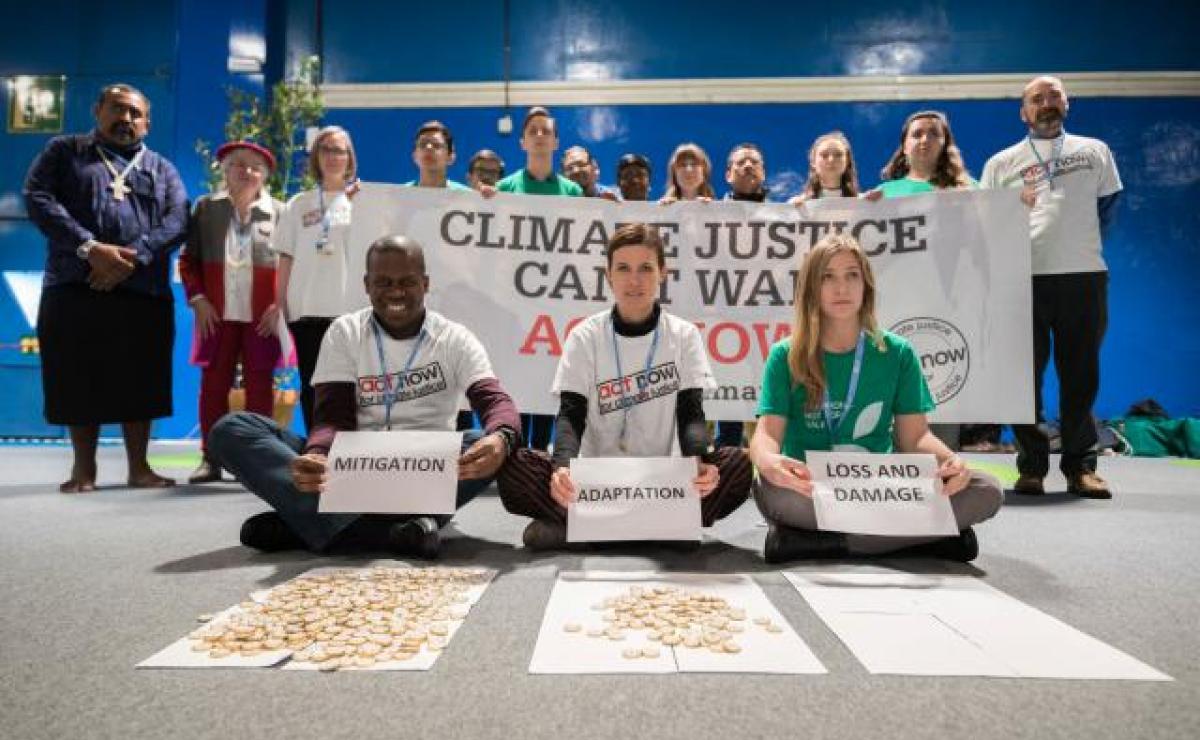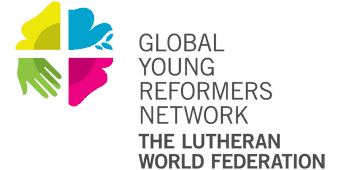“We must hear the cry of the Earth”

Latin American participants share COP25 experience
(LWI) - As COP25 in Madrid is set to draw to a close, representatives of Lutheran World Federation (LWF) member churches in Latin America summarize their experiences of what has been a challenging two weeks of climate negotiations and advocacy.
Alongside the LWF delegation, representatives of various LWF member churches from the Latin American region have been present at COP25 – a UN climate meeting that but a few months ago was envisioned to take place in Chile, and which is still described as ‘the Latin American COP’.
Rev. Santiago de Jesús Rodríguez Lara, a pastor from the Salvadoran Lutheran Church, speaks of his experience as a diaconal worker in a context already dearly affected by climate change.
Rev. Santiago de Jesús Rodríguez Lara, of the Salvadoran Lutheran Church.
“It is interesting that we have seen here at COP25, the slogan #TimeForAction is now. As for us as religious leaders in Latin America, this is not new, we are already acting,” he says.
“Just this year, our lands have experienced heavy rains, and ensuing floods,” Rodríguez explains. “As church, we take action when there are natural disasters. We visit communities to help and collect information about how they are affected. But ours are also visits of faith, of hope, that we are not alone – that we are enduring this difficult situation, but are going to make it out of the crisis together.”
And there is also a global connection to this effort of the Salvadoran church.
“We meet together, including with our fears and our worries, but we feel that we are not alone in El Salvador. Moving through these crises, we feel also that we are part of a global communion,” Rodríguez says.
Hearing the most vulnerable, ‘among the most prophetic things we can do’
Esmeralda Pérez Hernández is from the Lutheran Costa Rican Church.
For her, as an indigenous peoples’ rights activist and coordinator of the church’s youth program, attending COP25 has been about sharing the importance of highlighting that traditional knowledge that indigenous peoples have been passing down through generation after generation, about how to live a spirituality of balance with the Earth.
Esmeralda Pérez Hernández, of the Lutheran Costa Rican Church.
“This will be so important for the global community in now trying to find a way to change its ways of living, in view of climate change,” she says. Similarly, she adds, the church in Costa Rica works on human rights, as this connects closely with climate issues locally as well as globally.
Herself being part of an indigenous community, of the Huetar ethnic group in Quitirrisi in San José, Costa Rica, Hernández also describes an intricate relationship between indigenous and Christian spiritualities, and how together they build a consciousness of the environment that the world at large could learn from.
A group of indigenous leaders set out to deliver a climate letter to the COP25 presidency, demanding that indigenous voices be heard in climate process at COP25 in Madrid.
“Personally, I’ve been working with youth in the church for 20 years. And while my spirituality is very indigenous – as we have in our indigenous spirituality the spirits of nature, of the moon... – I find that I base myself and my work really in respect,” Hernández reflects.
“We have in our indigenous tradition the Sibö – the Creator of Earth – and I see that in Christianity there is one God, a God that is kind, and inclusive,” she adds.
“We need to hear that voice, of the indigenous communities, of those who are not able to be present in the international forums such as COP,” Hernández says.
Seeing the communities that have made it to COP25 and are trying to raise their voices, Rev. Rodríguez echoes a similar call for those who are not always being heard, to be actively listened to.
“There are many spaces where we are not really hearing the voice of those who are groaning with the Earth – the young people and their cry for justice,” he says.
A young man cries out for climate justice, as Fridays for Future create a 'human chain' on 9 December, demanding urgent action from politicians at COP25 in Madrid.
Reflecting on the indigenous communities’ engagement, he then adds, “this makes me feel that cry of the Earth, as it is described in the Bible, of the people saying ‘Climate justice now!”
“It is a clear voice, the soft voice of God, saying we need to act. We simply have no more time to lose,” Rodríguez says.
Written by Albin Hillert
Rodríguez and Hernández both travelled to COP25 with support from the Evangelical Lutheran Church in America (ELCA), together with other representatives from churches in Latin America.
